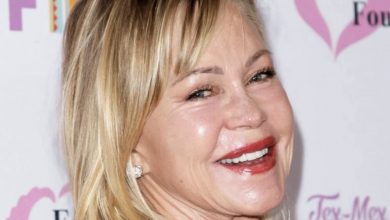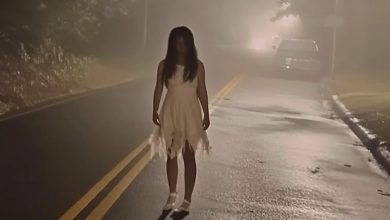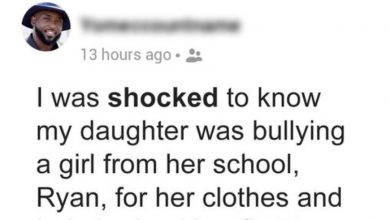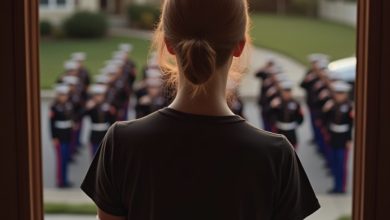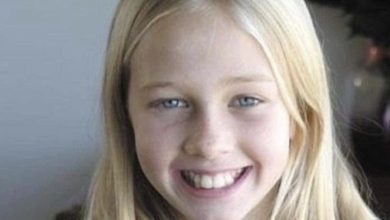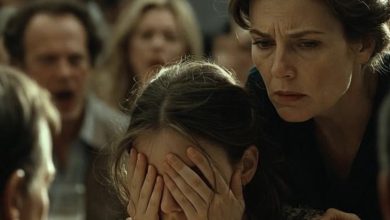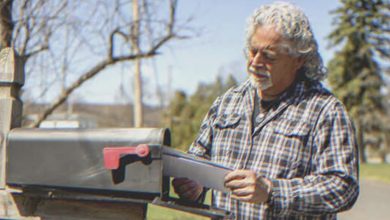A Mother’s Journey From Rejection to a New Beginning
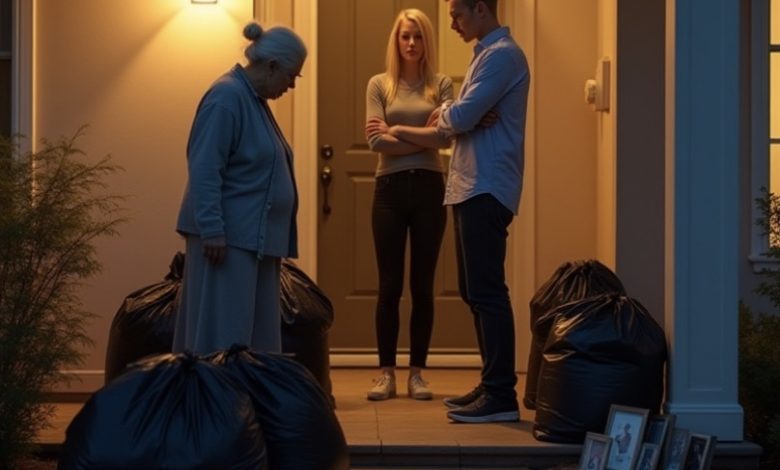
After losing my home to a storm, I went to my son’s place. He looked at me and said, “We need privacy. My girlfriend isn’t comfortable.” So I called my old high school love—now a successful businessman. Nobody knew I still had his number. When he arrived, he said just three words that changed everything.
goodstorieslife.com September 24, 2025 Share
My name is Pauline Mercer, and I am sixty-seven years old. At my age, I thought I had already faced every kind of loss life could bring. I had buried my husband, Harold, eight years ago. I had said goodbye to my parents long before that. I thought nothing could surprise me anymore. But I was wrong.
It happened on a Tuesday afternoon, one of those days that start out normal but end up changing everything. The sky above Maple Ridge, Kansas, shifted to a strange, sickly shade of green, mixed with black. Anyone who grew up in Kansas knows that color—it’s the color of danger. The tornado sirens began to wail, their long, rising cries filling the air.
I grabbed my radio, and the voice on it was urgent: “Large tornado on the ground. Moving northeast. Maple Ridge subdivision, take cover immediately.”
Maple Ridge subdivision. My neighborhood. My street. My home.
I had minutes, maybe less. I ran upstairs, pulled out an old suitcase, and filled it not with food or clothes, but with memories: my wedding photo with Harold, my son Evan’s baby pictures, my mother’s necklace, and a few papers that mattered. Forty-three years of life, reduced to what I could carry.
I hurried into the basement and sat in the corner, clutching Harold’s sweater, shaking as the roar grew louder. They say tornadoes sound like freight trains, but that doesn’t come close. It was like the earth itself had torn open and was screaming. Wood cracked, glass shattered, and above me the house Harold had once been so proud of was ripped apart.
Then, silence.
When I climbed the steps, my legs trembling, I opened the basement door and stepped into a world that no longer looked like mine. The roof was gone. The kitchen was a pile of broken boards and glass. Harold’s rose garden had been ripped apart, nothing left but dirt and broken stems. The table where Evan had done his homework as a child was wedged against the garage wall. I stood in the ruins, and for the first time since Harold’s funeral, I broke down and cried.
The next morning, an insurance adjuster walked through what was left. He was young, detached, snapping photos and making notes. When he was done, he said, “Total loss.”
I asked what that meant. He pointed to numbers on his sheet. “With your coverage, depreciation, and deductible, you’re looking at maybe ninety thousand dollars.”
Ninety thousand. That wouldn’t rebuild my home. It wouldn’t bring back Harold’s workshop or my rose beds. It wouldn’t give me back my sense of safety.
By that afternoon, I had three garbage bags of belongings and one old suitcase. That was it. Mrs. Patterson, my kind neighbor, drove me to Overland Park, where Evan lived. I told myself he would take me in. He was my son, my only family left. Surely, he would open his door.
Evan’s neighborhood was perfect. Wide streets, clean lawns, big houses that looked like pictures in a magazine. His house had white shutters and a bright red door. I stood on the porch with my bags at my feet, praying. When the door opened, Evan stood there, tall and neat, wearing the cautious smile he used for work. Behind him was Sloan, his girlfriend. She was beautiful, with blonde hair in a perfect bun and clothes so clean they looked untouched.
“Mom,” Evan said, stepping aside.
I placed my bags in the spotless hallway, embarrassed by the smell of mud and rain still clinging to me. “It’s only temporary,” I explained. “Just until the insurance clears and I can find an apartment.”
Evan glanced at Sloan, and I knew the answer before he spoke. “Mom, we need privacy,” he said softly. “Sloan doesn’t feel comfortable.”
Sloan folded her arms. “It’s not about you causing trouble. It’s about space. You’d be better off at a hotel, or maybe a shelter. That would be easier.”
Evan avoided my eyes. “I can give you some money to get started.”
I sat frozen. They weren’t going to let me stay. My own son, the boy I had raised alone after Harold died, the boy I had worked double shifts for so he could go to college, was turning me away.
I drove away with tears stinging my eyes, but I didn’t let them fall until I was alone. I parked Mrs. Patterson’s car in a Walmart lot, where the neon lights buzzed above rows of carts. That night, I leaned back in the seat and tried to sleep. Every sound made me jump. Every passing car reminded me that I had no home.
By the second night, I was exhausted. I ate a sandwich from a gas station, brushed my teeth in a fast-food restroom, and tried to ignore the pitying stares of strangers. My pride kept me quiet, but inside, I felt empty.
On the third night, while searching in my purse for change, I found something I had forgotten: an old business card, faded and soft at the edges. On it was a name I hadn’t spoken in fifty years: Graham Ellison. My first love. On the back, in my own teenage handwriting, were four words: Do not forget me.
I stared at that card, heart pounding. Surely the number no longer worked. Surely Graham had moved on, married, built a life. But as I sat in that parking lot with nothing left, I whispered his name.
On the fourth morning, pride finally gave way to desperation. I dialed the number.
It rang once, twice. Then a voice answered. “Morrison Development. This is Graham.”
My throat tightened. I almost hung up. But then I whispered, “Graham… it’s Pauline. Pauline Mercer.”
There was silence. For a long moment, I thought he didn’t remember. Then he spoke my name softly, like a memory made real. “Pauline…”
The words poured out of me. “The tornado destroyed my house. Evan doesn’t want me with him. I have nowhere to go. I’m sitting in a parking lot.”
His voice grew firm. “Tell me where you are. I’m coming.”
I tried to protest, but he cut me off. “Pauline, give me the address. Now.”
Two hours later, a silver car pulled into the lot. A man stepped out, older now, with silver hair and lines of age on his face—but his storm-gray eyes were the same. Graham walked toward me with quiet confidence, and when he reached me, he smiled.
“You look beautiful,” he said.
Three words. Just three. But they lifted the weight from my shoulders.
He loaded my bags into his car with care, as if they were treasures, and drove me to his home. His house was grand but warm, with gardens and tall oak trees. He showed me a guest room, larger than my old living room, and said simply, “Make yourself at home. This place has been too quiet.”
In the weeks that followed, Graham and I found a rhythm. Mornings on the porch with coffee. Walks through his garden. Dinners we cooked together. He told me stories about his life, about the engagement he broke off years ago. When I asked why, he said, “Because it wasn’t you.”
For the first time in months, I felt alive again.
When Evan discovered where I was, he began to call more often, pretending to care. Sloan sent gifts—candles, scarves, chocolates—as if kindness could erase rejection. Graham saw through it all. At dinner one evening, he looked Evan in the eye and said, “Your mother came here with nothing because you turned her away. Don’t treat her as a burden now that she has a place.”
Evan flushed and had no answer. For once, I felt seen.
Six months after the storm, Graham asked me to marry him. Not with a grand proposal, just with quiet honesty: “Pauline, I don’t want to spend another day without knowing you’re my wife.” I said yes immediately.
We married in his garden, surrounded by autumn leaves and a clear October sky. Evan came, without Sloan, and though things were still complicated, he watched me smile in my simple blue dress, and I think he understood at last.
The tornado destroyed my house, but it gave me something unexpected: a chance to begin again. It reminded me that sometimes, when life strips everything away, it leaves space for love to return. Graham saw not a burden, but a woman still worth loving. And I realized that storms can break you—or they can carry you exactly where you’re meant to be.

